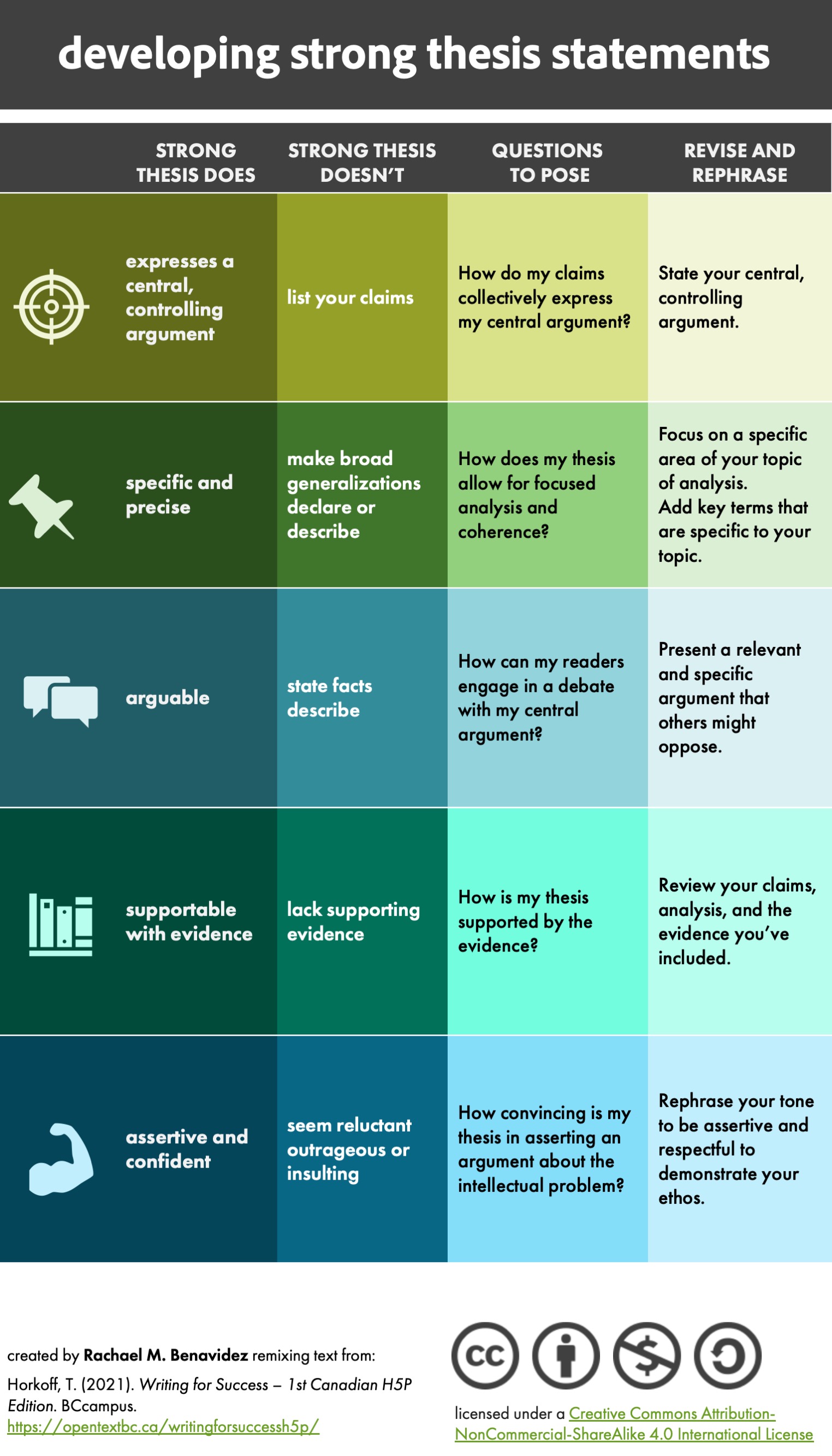Developing Strong Thesis Statements
What It Is, What It Does
The thesis or main claim is the sophisticated response to the central problem or question the writer addresses in his or her essay.
“[T]he purpose of the thesis is to give order both to the reader and to the writer. It does this by clearly stating the central claim that a piece of writing will try to prove [or the conclusion of the analysis conducted in the essay]. The writer takes care in the thesis statement to articulate a paper’s argument as precisely as possible, and this precision clarifies and focuses the direction of the paper. Most of the time, a writer must work with a dynamic thesis statement – one that changes and evolves during the writing process. In other words, a working thesis statement that articulates what a writer is interested in exploring will be enough to guide a writer through a draft of the essay, but the exact words for the thesis statement are not finalized until the paper is nearly complete.” (Moore and Cassel, Techniques for College Writing: The Thesis Statement and Beyond)
Features of Effective Thesis Statements
Effective thesis statements are:
- Debatable claims with potential counterarguments, but not statements of fact (nor questions).
- Specific i.e. focused on narrow, clearly defined subjects, using key terms and strong, precise verbs.
- Supportable using available evidence and reasoning.
- Insightful i.e. they challenge assumptions and offer new ways of seeing or responding to challenging questions or problems.
Types of Thesis Statements
There are two main types of theses:
- A call-to-action thesis makes a recommendation or advocates for a specific course of action, often in response to a controversial social issue or real-life scenario. Call-to-action thesis statements almost always include the words “should,” “must,” “ought” or “recommend.”
- An analytical thesis makes a claim about a subject of analysis: a text, an image, or an idea, for example. It reveals and explains a relationship, cause, effect or reason that might seem hidden, counterintuitive or not obvious to a casual reader.
Posing Questions of Your Thesis
In order to develop a strong thesis statement that expresses your central or controlling argument, you will need to pose questions of your thesis and use those questions to revise and rephrase it.

